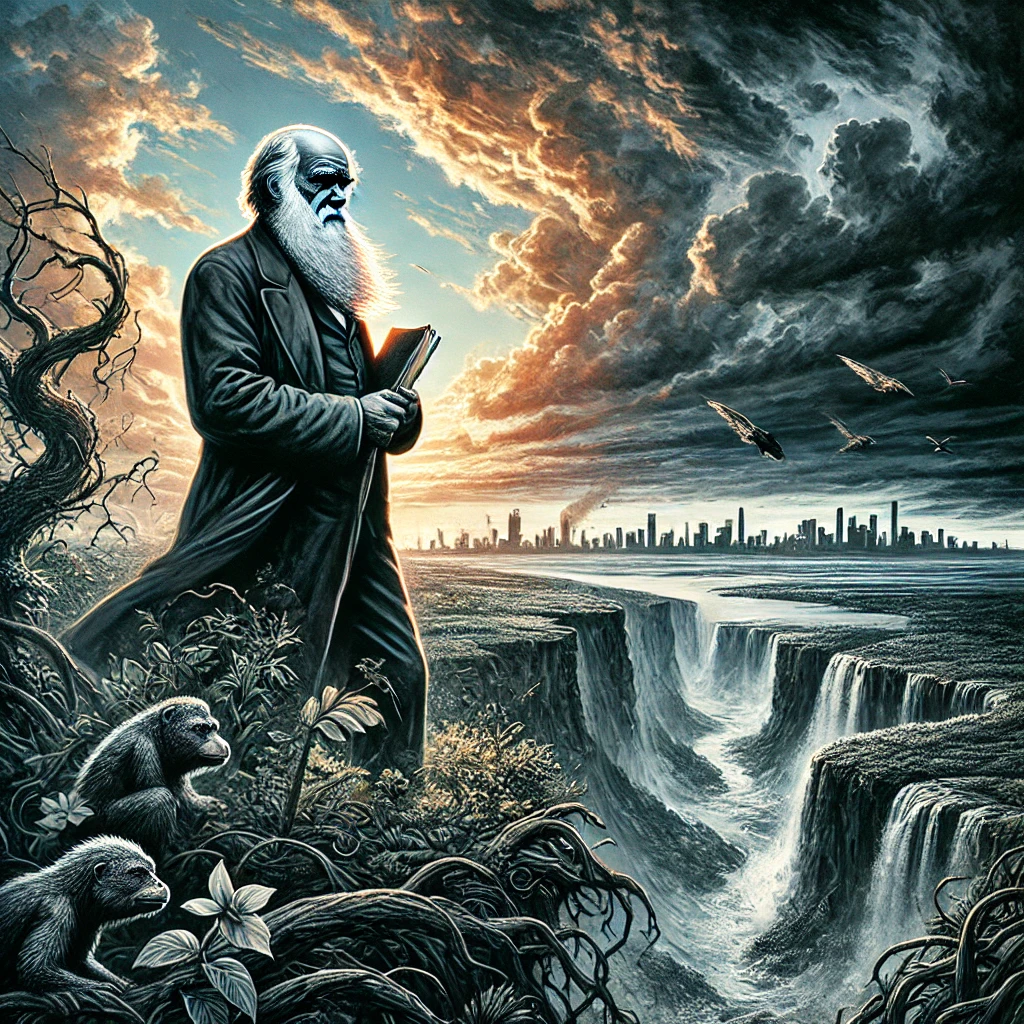John Adams once wrote:
“I must study Politicks and War that my sons may have liberty to study Mathematicks and Philosophy. My sons ought to study mathematics and Philosophy, Geography, natural History, naval Architecture, navigation, Commerce and Agriculture, in order to give their Children a right to study Painting, Poetry, Musick, Architecture, Statuary, Tapestry and Porcelaine.”
But here we are in 2025, staring down the barrel of history’s loaded gun, and it seems the chain Adams envisioned has snapped somewhere along the way. The luxury of stepping back—assuming the world will be steered by some unseen hand of reason—has landed us in a precarious place. The idea that scientists can afford to be passive, cloistered figures scribbling away in obscurity, trusting that knowledge alone will illuminate the path forward, now seems like a dangerous delusion.
Darwin changed the world not because he simply understood the mechanics of natural selection, but because he put his own skin in the game. He absorbed the blowback. He braved the storms of his time. He laid out the facts, piece by painstaking piece, for a world that was not eager to listen. And yet, listen they did. Not immediately, not without resistance, but the ideas took root. They outlived him. That is the long game of intellectual revolution.
As I sit here reflecting on this most sacred of days, I can’t help but ask: WWDD—What Would Darwin Do? (And yes, we absolutely need to make WWDD bracelets.)
Would he quietly publish papers, hoping truth alone would steer society toward reason? Or would he recognize what should now be obvious to us—that truth, without power, is like a tree falling in an empty forest? I suspect that if Darwin were alive today, he would see the existential threats before us—climate collapse, the unraveling of biodiversity, the erosion of evidence-based policy, and the wildfire spread of scientific illiteracy—and conclude that science must do more than explain the world. It must shape it.
And who better to lead that charge than those of us who have spent our lives studying nature’s playbook? Who understands the stakes more intimately than the scientists, conservationists, and educators who see the slow-motion train wreck unfolding in real time? Who better to inject reason into the decision-making process than the very people who have devoted themselves to understanding how reality actually works?
And let’s be clear—I’m not talking about activism in its modern, often diluted, performative sense. I’m talking about direct engagement in the political process. About fighting for what we know to be right: the preservation of nature, the pursuit of objective truth, the defense of policies rooted in evidence, and the rejection of the shortsighted, self-serving nonsense that passes for governance in far too many places.
So, on this Darwin Day, I pose a challenge to all of us: How do we evolve from passive observers in the sociopolitical process to active participants? How do we step into the rooms where decisions are made and ensure that reason, not rhetoric, carries the day?
Because if we don’t do it, who the hell will?

